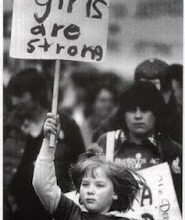By Sana Malik ![]() @MalikSana28
@MalikSana28

The government funded-housing projects are called public housing, further falling into different categories. The different names based on geographical locations have been descriptive for the term ‘public housing’ such as low-income housing, state-housing, state-sponsored housing, welfare housing, non-profit housing, low-cost housing, social housing, and affordable housing, all these come under the public housing.
When a housing project is subsidised by public funds for the provision of low-income groups by government, the public housing is the name commonly used counting as public sector projects. The public housing projects have been a source of affordable housing making a true difference to the social life of poor people in different parts of the world. Housing policies in every country focuses on the section of public housing in theoretical as well as the practical manner for facilitating the poor and needy groups of the public.
The concern of different national housing policies believes to enhance the innovative strategies in delivering affordable public housing and assisting the deprived communities to flourish.
What’s in a name?
A recent debate has been generated by the beneficiaries of the projects who don’t want to get labelled as the low-income groups or needy ones, or to be considered among the ‘Urban Poor category’. The reason being in that in South Asia, and specifically countries like India and Pakistan, socio-economic brackets and mindsets do matter significantly, with them playing a deciding factor in a person’s social networks and family ties.
For example, no one wants to get married to our (Urban Poor) circle because we are publicly associated with the ‘tag’ of the poor community.
But the question is that the project marketing and advertisement would essentially demand mentioning the target groups of its project through the eligibility criteria. The affordability of each group of society is determined through his/her monthly income and ultimately as per universal rule, 30 percent of which goes to housing expenditure. Even the project associated with the name of low-cost housing ultimately defines its customers on behalf of what they can afford according to their salary scale.
Why the feeling of offence in being categorised into the low-income community?
Maybe there is another lens to this whole mindset, and that could be relatable to the treatment they receive from other income groups as well as the government sector. Receiving the good treatment in the society through the availability of all major infrastructure and facilities as well keeping in mind their employment opportunities which can be associated with the location of proposed or built-up projects for this community.
Far off locations create problems for them to keep pace with commuting towards their business and jobs daily. On the other way round, incorporating them with the other groups of society through mixed development would help in creating the earning opportunities as well as breaking the class barriers among them. Inclusion of these groups in the society as in like other sections of society like doctors, engineers, lawyers and professionals would reduce their inferiority complex and lessen the economic disparity among them as a society. Hence, there is need to accept the terminology ‘low-income housing’ as it doesn’t primarily impact the nature of the housing project as far concerned with other labels and could be rationalised by speaking and connecting with beneficiaries of the project on the community level.
About the Author ![]()
Sana Malik is currently pursing doctoral study in School of Housing, Building & Planning (HBP), Universiti Sains Malaysia. She is currently on study leave University of Management and Technology (Pakistan), where she was working as Assistant Professor in School of Architecture and Planning. Sana researches in Housing, Urban/Rural Sociology and Architectural design. Her current PhD thesis is focused on institutional stakeholder collaborations for low-income housing provision in case of Pakistan. In continuation of dedicated concern for poor housing provision, my doctoral study is based on the grounded theory method in which theoretical extensions to institutional, stakeholder and collaboration theories have informed a new conceptual and methodological framework for extensive housing analysis.




Good scheme for low paid peoples